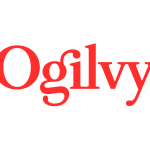“EEEK IT’S ESG! Sustainability and what brands should do” was first published in MARKETING WEEKENDER Issue 344
The melting Antarctic. Abnormal weather and hail in Dubai.
Unseasonal pelting rain in Malaysia.
Italy’s hottest summer for 30 years, destroying the cheese and wine crop for 2023. Catastrophic floods and loss of life in Pakistan.
The world is witnessing disturbing phenomena, and some scientists now believe we have past the point of no return, when the consequences of the climate change we see everywhere cannot be reversed. Here’s a scary statistic recently discovered in 2022: 50% of the world’s oceans show extreme heat from 2014 onwards. That number was 2% 120 years ago. And this is irreversible. The South Atlantic passed this point 24 years ago. In other words, we’re discovering the damage we have caused to the Earth 24 years after we caused it.

Given this doomsday scenario, it’s no wonder that ESG (environment, social, governance) based “moral” investing has been on a rapid rise for the last few years. A graphic from the Financial Times shows that, worldwide, ESG funds have grown from less than USD 1 trillion to USD 3 trillion+ in 3 years. The financial world has rushed helter skelter into ESG.

But is this investment merely greenwashing or something practical for the future? The war in Ukraine is now seeing ESG funds go back to investing in defence companies for instance, something they had sworn off as being non-ESG. Fossil fuels are suddenly kosher and back in vogue, when Russia rachets up the price of gas to Europe. The very definition of ESG grade funds is being doubted.
The German financial watchdog (officially the Federal Financial Supervisory Authority, but since that’s a mouthful it’s called BaFin) has realized the shifting goalposts are not tenable.
“Against the backdrop of the dynamic situation in regulation, energy and geopolitics, we have decided to put our planned directive for sustainable investment funds on hold,” said BaFin president Mark Branson. “The environment isn’t stable enough for permanent regulation.” (copyright the Financial Times)
Thus there is a real risk that ESG funds may soon turn out to be a deceptive product, or not so sustainable after all.
Oil and gas majors globally are getting more heat from watchdogs and the public. In late August the chic French government became the first country in Europe to ban fossil fuel advertising. In London there were public protests urging WPP companies not to work on petroleum companies briefs. Protestors outside WPP’s Ogilvy and Wunderman Thompson offices targeted the agencies for their work with Shell and BP, while protestors at Edelman’s offices are targeting the communications agency for its work with oil and gas company Exxon Mobil. Using humour this campaign urged creative folks in these agencies to “Delay. Dither. Bungle. Wreck the brief.”

In such a topsy-turvy environment, what is the ethical and sustainable approach for brand builders to follow? And how can they communicate effectively with consumers who are becoming increasingly skeptical?

Here are some ground rules for marketing conduct:
1. Build internal momentum to find relevant solutions:
When trying to communicate sustainability and responsible corporate citizenship, the first and best is to be truly responsible and sustainable. There is no substitute for genuine efforts. When companies pledge to be sustainable, they must ensure they are straining every corporate sinew to achieve that in their operations. The road isn’t easy, the costs can escalate, the options may be limited. Internal momentum and consensus needs to be built about where the company wants to go, because only when the rank and file embrace sustainability will the biggest leaps happen. Profit above the planet is a short-sighted strategy, but thankfully many companies are seeing the importance of ESG.
2. Communicate sustainability in the mainstream, and not as a sidelight:
Historically, sustainability has been seen as an aside, something done by the way, like a token offering paid from vast income made through unsustainable practices. However, sustainability needs to be mainstream, and integrated with regular marketing, not treated as a little whisper in the wings. Over 25% of Malaysians believe sustainability is critical for the future of the country (Ampersand Advisory study), and many of them are young and vocal.
3. Co-create, don’t preach:
it is critical to include NGOs, consumers and concerned citizens in your actions and your communications around sustainability. Consumers trust most the voice of other consumers, and they are skeptical about claims made by advertisers. When your brand makes rigorous efforts to be sustainable, it is vital to work with credible allies who can amplify and attest to your work. Also, it is important to let consumers see firsthand the genuine efforts you are making. I remember a successful ESG campaign we ran for Blackmores where we tentatively asked for volunteers for a community outreach and put a KPI of 20 volunteers for ourselves. We ended up getting over 300, and had to turn many away: such was the volume of interest and concerned citizens.
4. Be transparent, and own up fast:
Mistakes and missteps are unavoidable, and bad news travels fast through social networks. For bosses used to controlling every aspect of the company’s messaging and actions, dealing with such backlash seems new and difficult. But it is better to own up, apologize, and highlight other positive actions over the following weeks and months, than to stay silent in denial. Fear of those missteps should not derail the overall agenda. Crises come and go, but the brand needs to endure and continue on its path to sustainability.
Clearly, ESG concerns are multiplying and proliferating as climate change hits hard. Brands and brand directors need to recognize that sustainability is mainstream and imperative, for their children to have a liveable future.
Sandeep Joseph is the CEO and co-founder of Ampersand Advisory, a strategic media and data-driven consultancy. The company’s mission is “business results now!” and it has won numerous local and international awards including APPIES Asia Pacific Media Agency of the Year 2022. The views expressed here are the author’s own: you can debate with him at sandeep@ampersand-advisory.com
MARKETING Magazine is not responsible for the content of external sites.









